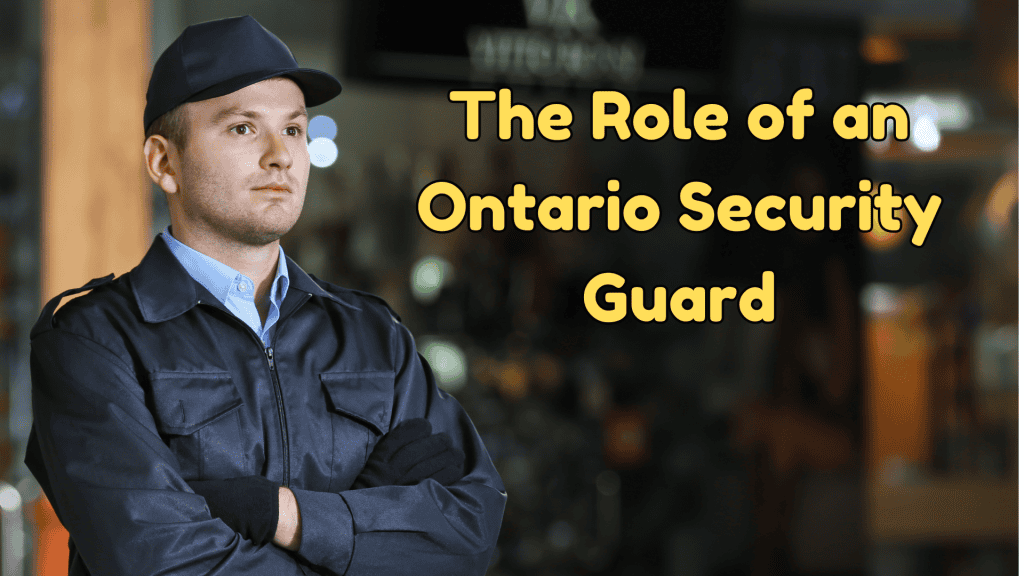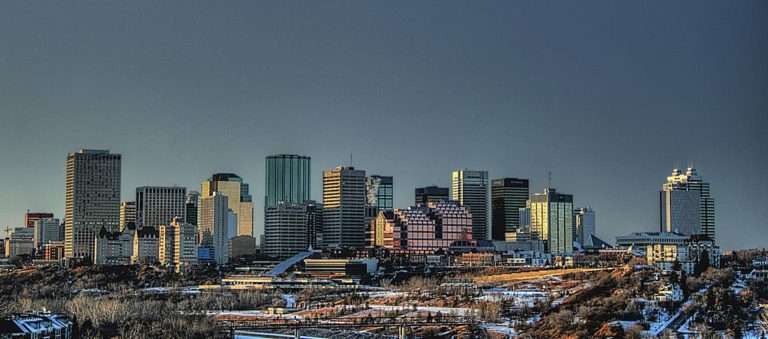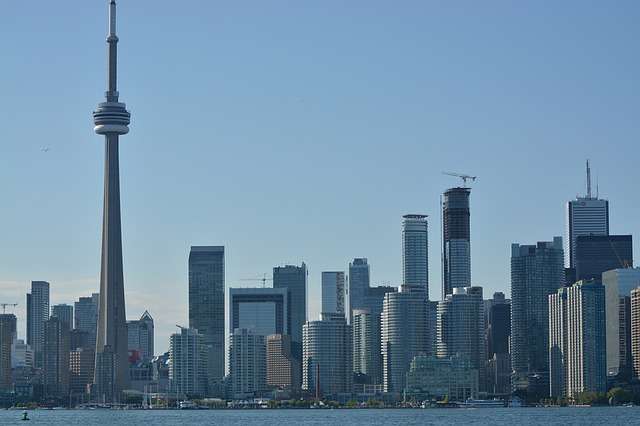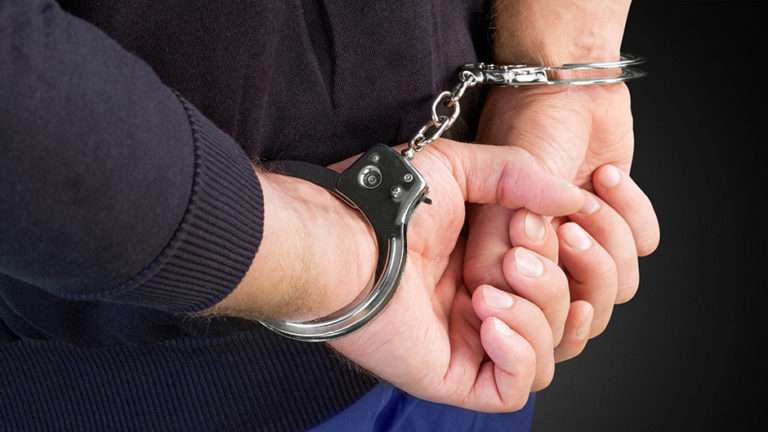The Role of an Ontario Security Guard: Key Responsibilities and Impact

General Overview
An Ontario security guard serves as a key line of protection, safeguarding individuals, properties, assets, and sensitive information.
Found in environments such as malls, industrial facilities, commercial, and residential buildings, they often act as the initial barrier against threats.
As the landscape of crime shifts and public law enforcement resources are stretched, the demand for private security personnel in Ontario—and similarly in other regions—has seen a notable rise.
Private security professionals now far exceed the number of police officers in many jurisdictions, reflecting their essential role in modern society.
The legal framework for the private security industry in Ontario is set out by the Private Security and Investigative Services Act, 2005.
This act specifies the obligations and standards for all industry workers.
To work legally as a security guard in Ontario, individuals need to complete a government-approved training program, successfully pass a designated exam, and obtain a security guard licence.
These requirements ensure that candidates are well-prepared to take on their responsibilities effectively.
Primary Roles and Responsibilities
Security guards have four main responsibilities—observe, deter, record, and report.
Each duty focuses on enhancing safety and managing risks:
- Observe: Regular patrols and monitoring of surveillance tools are crucial. You must remain vigilant for any signs of potential danger, unauthorized entries, or suspicious activity. Observational skills are vital in identifying threats before they escalate.
- Deter: Your presence as a uniformed guard is often enough to discourage criminal acts. The mere knowledge that someone is watching decreases the likelihood of wrongful actions, as potential offenders are less inclined to misbehave with an active security professional nearby.
- Record: Documentation is essential. Keeping accurate records of patrols, tasks, and incidents ensures thorough follow-up. Detailed notes support police investigations, legal proceedings, and internal reviews, ensuring that all incidents are traced and addressed adequately.
- Report: Communicating incidents to the correct authorities is a fundamental aspect of your duties. Whether it involves alerting an employer, notifying the police, or contacting emergency services, clear reporting and strong communication skills are crucial.
Key Stakeholders
Security guards owe their responsibilities to three main groups:
- Employer: Your primary obligation is to protect your employer’s staff, property, and assets. Whether through continuous patrols, operating surveillance equipment, or adherence to protocols, these actions are all crucial in minimizing threats of damage or theft.
- Public: You also play a significant role in ensuring the safety of the public while on your employer’s premises. In places like malls or public event spaces, managing crowd control, screening at entrances, and cooperating with authorities during emergencies are vital tasks.
- Self: Maintaining your integrity and adhering to lawful practices is pivotal. You must be aware of your legal boundaries, uphold others' rights, and prioritize personal safety while on duty. Ensuring your own safety enables you to perform duties effectively without compromising your wellbeing.
Comparison with Public Law Enforcement
The roles of private security and public law enforcement differ significantly.
Public law enforcement agencies, such as police departments, are government-funded and possess broad mandates to enforce laws, maintain public order, and protect citizens.
These agencies have the authority to conduct investigations, make arrests, and uphold legal regulations, extending their reach across municipalities, provinces, and the nation.
In contrast, private security guards are engaged primarily by private businesses and individuals, focusing on securing specific properties and assets.
Unlike police officers, you do not have broad legal powers.
Your actions are typically confined within the bounds of the property you are tasked to guard.
Although you can detain someone caught in the act of committing a crime, the law mandates that they should be handed over to the police.
Despite these distinctions, collaboration between public law enforcement and private security is essential.
As a security guard, you often serve as the first responder in case of incidents, gaining immediate information that can be pivotal in investigations.
By providing incident reports, surveillance evidence, and serving as witnesses, you can significantly aid police efforts, enhancing public safety through coordinated protection strategies.
Role in Public Safety and Crime Deterrence
Your role in creating a safe environment and discouraging unlawful activities is fundamental.
The presence of a uniformed security guard effectively deters thefts, vandalism, and other criminal activities in spaces frequented by the public, such as retail outlets.
Here, loss prevention is crucial, ensuring policies on access control and safety inspections are adhered to diligently.
Security guards also play integral roles during emergencies.
Whether it involves pinpointing the source of alarms, directing emergency services to specific locations, or securing and isolating hazardous areas, your knowledge of the environment ensures a swift, efficient response to crises.
Beyond immediate safety, security personnel contribute to crime investigations.
Should crimes occur on your watch, it often falls to you to secure the scene, preserving evidence crucial for later inquiries.
Your familiarity with the premises and ability to collect and preserve information significantly aid in post-incident investigations, ensuring justice is served and further threats are mitigated.
Collaborative Efforts with Public Services
Private security and public policing efforts often work hand-in-hand.
Although each has distinct responsibilities and powers, the overlap of tasks ensures comprehensive safety coverage for the community.
By serving as the initial point of contact during disturbances, security guards can relay vital information to law enforcement, facilitating smoother interventions.
This cooperative interaction extends beyond immediate incidents.
For instance, during large public events or in high-traffic public spaces, the collaboration between security personnel and police officers helps in managing crowds, enabling preventive strategies against potential threats or disorderly behaviours.
Such a unified approach ensures maximum safety and reinforces public confidence in the security measures in place.
Security guards also have responsibilities that transcend basic compliance duties.
In addition to immediate safety tasks, you're instrumental in establishing secure environments through non-verbal means, like maintaining a visible presence that signals assurance and caution to potential wrongdoers.
This proactive security posture establishes trust with the public and conforms to professional standards of the security domain.
Your role is indispensable, particularly in settings where public law enforcement cannot offer constant oversight.
By acting decisively and maintaining a calm presence in the face of disruptions, you help sustain order and reassure those around you.
This proactive stance addresses concerns and promotes a culture of security awareness in the community.
Your presence in reducing crime—as a deterring factor—and efficiently managing emergency responses cannot be underemphasized.
As crime dynamics shift and evolve, ongoing development of skills and practices ensures that your actions remain relevant and effective against contemporary threats.
By maintaining high ethical standards and exercising due diligence, security guards not only protect those in the immediate vicinity but also contribute to a broader network of safety infrastructure.
Through structured training and strategic coordination with law enforcement, private security becomes an integral part of the community’s collective safety efforts, safeguarding interests on multiple fronts while enhancing societal trust.
Commonly Asked Questions
What are the Key Duties of an Ontario Security Guard?
Security guards in Ontario are tasked with ensuring the safety and security of properties and individuals.
Their responsibilities include monitoring surveillance equipment, patrolling designated areas, and responding to emergencies or disturbances.
Communication with law enforcement agencies is also a critical part of their duties.
Is it Legal for Security Guards in Ontario to Detain Someone?
Security guards in Ontario have the authority to detain individuals under certain conditions.
They may perform a citizen's arrest if they witness a crime occurring and have reasonable grounds to believe the individual has committed an offence.
Detained persons must be turned over to law enforcement as soon as possible.
What Restrictions Apply to Security Guard Actions in Ontario?
Security guards in Ontario must adhere to specific limitations that dictate their conduct.
They cannot use excessive force and must operate within the boundaries of the law.
Their actions should always align with legal standards and respect individual rights.
Which Equipment Are Security Guards Not Allowed to Carry in Ontario?
There are regulations in Ontario concerning the types of equipment security guards can and cannot carry.
They are generally prohibited from carrying firearms.
Additionally, some items like batons or handcuffs may have usage restrictions based on licensing and specific permissions.
What Defines the Professional Behaviour of Security Guards in Ontario?
The code of conduct for security guards in Ontario is designed to ensure they act professionally and ethically.
This includes maintaining confidentiality, displaying integrity, and consistently practising fairness and respect.
Guards are expected to uphold the reputation of the security industry through their behaviour.
How Do Ontario Security Laws and Regulations Contrast with Other Canadian Regions?
The legal framework in Ontario for security guards can differ from those in other Canadian provinces.
Variations may include licensing requirements, training standards, and specific regulatory guidelines.
Each province has its regulatory body that tailors rules to fit regional needs and contexts.
Last Updated on Dec 9, 2024





